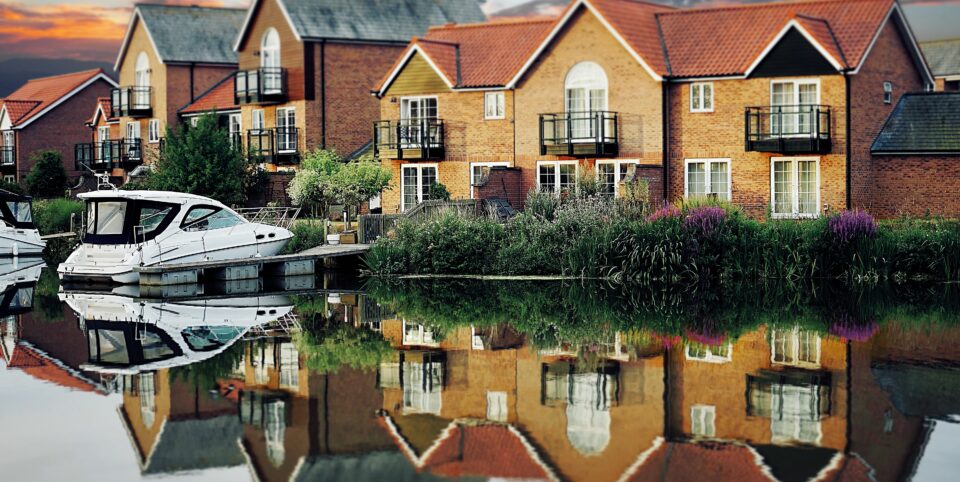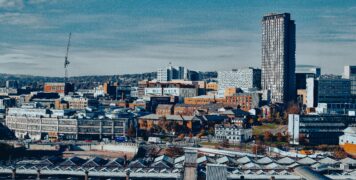Contact
020 4515 6728
info@ccameron.co.uk
Charles Cameron & Associates
Blackfriars Foundry
154-156 Blackfriars Road
London SE1 8EN
Already own a property, and thinking about buying another?
October 21, 2021
Information published was correct at the time of writing
--

Investing in a second property is on the increase. In fact, the number of people in the UK who own more than one property has risen by more than 50% over the last 20 years. If you’re thinking about buying a second property, here are some of the financial implications you need to consider. Make sure you factor in additional expenses such as Stamp Duty and potential Capital Gains Tax on your second property in the future. When doing your calculations these can add significantly to the overall cost. There will also be ongoing expenses to consider such as council tax, insurance and utilities.
REASONS TO BUY A SECOND PROPERTY
There are several ways that you can make a profit from buying a second property:
• By renovating the home and reselling it, hopefully for more than you paid
• By owning it for several years or more, since property prices tend to increase over long periods
• By renting it out as a residence to long-term tenants
• By renting it out as a holiday home for short periods
CONSIDER YOUR GOALS AND MOTIVES
The motive for buying a second property may not only be financial. Maybe you want a holiday home to visit on weekends, holidays or in the summer. Or you’d like to live in the home when you retire or pass it on to your children. But, even if you’re buying for these reasons, you’re likely hoping that you’ll make some money from the property over the long term. Property is generally considered a relatively low-risk long-term investment, but you do need to be aware of the costs that are involved.
STAMP DUTY FOR SECOND HOMES
As a homeowner, you’re probably familiar with Stamp Duty, the tax you pay to the government when you buy a property. If you’re buying a second residence in England or Northern Ireland you’ll pay a 3% Stamp Duty surcharge on top of the standard Stamp Duty rate. The full Stamp Duty holiday ended in June 2021 and is tapered until the end of September 2021 in order to smooth the transition back to the original rates.
CAPITAL GAINS TAX FOR SECOND HOMES
Another tax that applies is Capital Gains Tax. This is a tax charged on profits you make from selling valuable possessions, including second homes. For each tax year, every individual has a capital gains allowance, which is currently £12,300. The Chancellor announced in Budget 2021 that the annual exemption will remain at this amount for the tax years 2021/22 to 2025/26. Any profits you make from selling assets, including a second home, up to this amount are tax-free. If you gain more than that from selling the property, you’ll be liable to pay Capital Gains Tax at a rate of 18% (if you’re a basic rate taxpayer) or 28% (if you’re a higher or additional rate taxpayer). [1]
MORTGAGES FOR SECOND PROPERTIES
Before you commit to purchasing a second home you will need to decide how to finance it. There are a number of mortgage options available depending on your financial situation. The type of mortgage you’ll need depends on how you’ll use your second home. For example, you might be looking for a buy-to-let mortgage, holiday-let mortgage or conventional mortgage.
BUY-TO-LET MORTGAGE
Most conventional mortgages won’t allow you to rent out your property to long-term tenants, so you’ll need a mortgage specifically designed for buy-to-let investors. These tend to require a higher deposit (usually 25% or more of the total property value, compared to 5% or more for conventional mortgages). Often, buy-to-let mortgages are interest only, meaning you won’t need to make capital repayments until either the end of the mortgage term or when you sell the property.
HOLIDAY-LET MORTGAGE
Holiday lets are sometimes considered riskier than long-term lettings since the income they generate is less predictable and relies on your property receiving plenty of bookings. So, you’ll need a specific mortgage for holiday lets. Personal use is usually allowed for up to 90 days per year and mortgages considered can be on an interest-only or repayment basis available on properties across mainland UK. The maximum loan is typically 75% or less.
CONVENTIONAL MORTGAGE
If you’re buying for other purposes, such as to use the property yourself as a holiday home, or to renovate and resell it, you can apply for a conventional mortgage. You’ll still have all the usual options, such as a fixed-rate or tracker mortgage. Alternatively, if you own your property outright, you could consider remortgaging rather than taking out a second mortgage, as long as you have built up sufficient equity.
[1] – CGT allowance was correct at the time of writing, it has now been reduced to £6,000.



